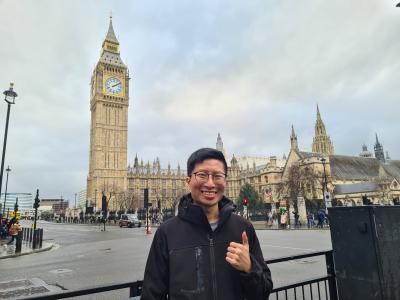
Why do so many people want to work for Google? For yet another year in a row, the US tech giant was top of Universum’s survey of the most attractive workplaces for Singaporean graduates in 2018. The reason, the study found, was not just that it is a global behemoth with a pay structure to match, but the company’s focus on “work-life balance”, which it has elevated to a science.
Famous for its colourful, open plan offices filled with bean bags, bars and pinball machines, Google has invested heavily in research into what it calls “gDNA”—the things that make its employees tick.
The days when young people wanted to walk out of university and into a job for life may not entirely be over—Universum found that “job security and stability” was the second most important factor for graduates—but the millennial generation is more focused on health and happiness in the workplace than it is on money and advancement. This has profound implications for employers as they look to attract, retain and develop top talent. Companies, whether large or small, need to understand what makes their employees happy, and what drives their stress.
Stephenie Pang, who graduated from SMU Lee Kong Chian School of Business in 2016 with a degree in business management, now runs TalentTribe Asia, which focuses on linking graduates with jobs they love and helping companies engage and attract millennial talent. To do so, TalentTribe works closely with companies to provide job seekers with a 360-degree view into company cultures, office spaces and the work life of employees through interviews and videos.

Stephenie Pang (Photo credit: TalentTribe Asia)
Stephenie says that even highly effective people can struggle to find their balance. “Honestly, work-life balance used to be a challenge I struggled with. Startup founder identity aside, I’m an introvert with a need for personal time. The need for a startup founder to be ever-contactable and ever-hustling seemed to conflict with my fundamental need to recharge,” she says. “I’ve come to realise that ‘work-life balance’ or the lack of, may just be a case of helplessness—when you’re in the midst of your personal time, and yet the influx of work-related calls and emails still come pouring in.”
Work stress has complex drivers, and is not simply about how much time a person has to spend in the office. Google’s gDNA study found that just over 30 per cent of its staff are able to fully separate their work life from their home life, while companies, governments, trade unions and individuals are still trying to puzzle through what the impact is of constant connectivity. France even passed a law, which came into effect this year, enshrining the “right to disconnect” from work email out of hours.
The challenge is more about control than it is about demands on an employee’s time, Stephenie believes.
“It is easy to dismiss work-life balance as simply letting the employee work out of office, or have half-days off on Friday,” she says. “But if the employee still has an overwhelming amount of work-related issues to check, or is still needed to be always contactable—and these expectations are not aligned upfront—the employee may still be overwhelmed by work and feel that they lack work-life balance, due to the perceived lack of control of their time.”
Stephenie says that rather than set strict rules on timekeeping or connectivity, she prefers employees to take control of their time and pace of work within a set of clearly communicated boundaries. For example, the employer can agree on deadlines and milestones for tasks to be completed, allowing the employee to shape the task to fit their own needs.
Moving towards flexibility and a management model more centred on the individual can be difficult for organisations that have long followed a more traditional path. Institutional inertia and deep-rooted corporate culture are tough to shift. If everyone works long hours in a company, it is hard to convince anyone to break the mould, even if they are more successful as a result. Stephenie says that the solution could come down to setting the right goals and incentives to redefine what success looks like for the company and the employee.
Photo credit: TalentTribe Asia
One important thing to consider, Stephenie says, is that there is no single approach that works for every business. “It’ll be difficult to apply a one-size-fits-all strategy. Different companies have different workplace cultures and business needs,” she says. “Rather than a replicate and apply strategy, it may be more effective for employers in other sectors to assess their company culture and adapt, or create practices of their own. Many local SMEs in Singapore, for example, may not have a culture that is as glamorous as Google or Facebook, but a warm family-like environment.”
Traditionally conservative employers, such as insurance companies or government agencies, have begun to move towards more open cultures, but the nature of what they do means that they can never be completely flexible.
“For such companies, having their own set culture and activities that are more consistent with their employer brand personality is more important,” Stephenie says. “Ultimately, the candidates that they attract will be different from those who are attracted to Google and Facebook, but these candidates possess the culture-fit that such companies are looking for.”
If you’re a jobseeker, see what it is like to work at different companies & careers in Singapore with TalentTribe. Apply for full-time jobs and internships that these companies are hiring for. For employers, see how TalentTribe can help to tell your employer brand story.

